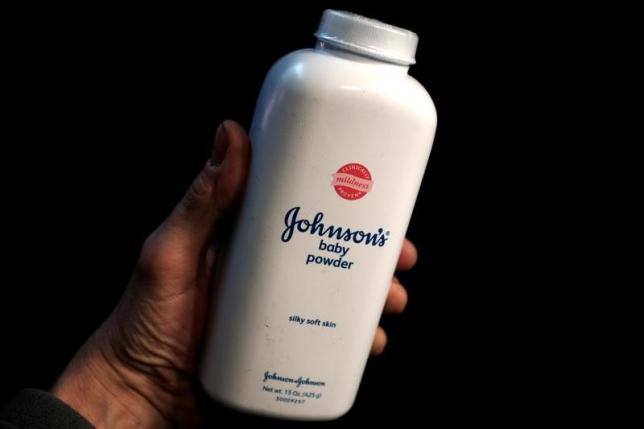Faced with nearly 20,000 lawsuits involving talcum powder cancer claims, Johnson & Johnson announced this week that it will no longer sell talc-based Baby Powder, a product that has been a hallmark of the company for more than a century. Since 1894, Johnson & Johnson has marketed its talcum powder products as safe, pure and gentle enough for babies, a claim that resulted in Baby Powder becoming a household staple for generations of families in the United States and worldwide. According to a press release issued by the company on May 19, however, Johnson & Johnson will no longer sell its talc-based Johnson’s Baby Powder in the United States, where thousands of people – mostly women diagnosed with ovarian cancer – claim that the company failed to warn them about the potential link between the product and cancer. If you or someone you love has been diagnosed with ovarian cancer or mesothelioma allegedly caused by exposure to talc-based Johnson’s Baby Powder, contact a knowledgeable talcum powder cancer attorney for legal help.
Asbestos Contamination in Talcum Powder Products
For decades, the main ingredient in Johnson’s Baby Powder was talc, a soft mineral known for its ability to absorb moisture, eliminate odors and cut down on friction. Talc is widely used in cosmetic products, including baby powder and blush, as well as other consumer products, and while the FDA says that talc in makeup is generally recognized as safe for such uses, the agency has issued several warnings over the past year about the presence of a cancer-causing substance called asbestos in popular tac-based cosmetic products. In its final report of talc-containing cosmetic products tested for asbestos, released in March 2020, the FDA indicates that nine product samples tested positive for asbestos contamination.
It wasn’t until 1980 that Johnson & Johnson developed an alternative to its talc-based powder made with cornstarch, after consumer advocates raised concerns about the potential for talc to be contaminated with asbestos, a known carcinogen. Since the 1970s, talc used in consumer products has been required to be free from asbestos. However, reports indicate that asbestos contamination can occur inadvertently when talc is mined, because the minerals naturally occur close to one another in the earth. Inhaling asbestos fibers is known to cause a type of cancer called mesothelioma and the American Cancer Society says that “talcum powder might cause cancer in the ovaries if the powder particles (applied to the genital area or on sanitary napkins, diaphragms, or condoms) were to travel through the vagina, uterus, and fallopian tubes to the ovary.”
J&J Knew for Decades that its Talcum Powder Contained Asbestos
Plaintiffs involved in the growing talcum powder litigation allege that Johnson & Johnson was aware that its talcum powder products sometimes contained asbestos, a known carcinogen, and chose to keep this information from the public. In fact, a Reuters investigation published in December 2018 revealed internal documents from Johnson & Johnson showing that the company knew for decades about the potential link between its talcum powder products and cancer. According to the investigation, “from at least 1971 to the early 2000s, the company’s raw talc and finished powders sometimes tested positive for small amounts of asbestos” and Johnson & Johnson executives not only knew about the ongoing problem, but deliberated about how to address it, all the while keeping the information from federal regulators and the public.
Risks of Using Talcum Powder for Feminine Hygiene Purposes
Although Johnson’s Baby Powder has long been advertised for infants, the main users of talcum powder have been adult women who routinely applied the powder to their perineum and to prevent chafing between their legs. Johnson & Johnson marketed its talc-based Baby Powder and Shower-to-Shower body powder products as a kind of “hygiene extra” for women for years, advertising that “just a sprinkle a day keeps odor away.” As of late March 2020, Johnson & Johnson faced 19,400 lawsuits related to its talc-based powder products, most involving women who developed ovarian cancer after using talcum powder for decades as part of their feminine hygiene routine. However, a growing number of talcum powder lawsuits against Johnson & Johnson involve plaintiffs who developed mesothelioma, a cancer that develops in the lining of the lungs, abdomen or heart, allegedly due to inhaling asbestos fibers in tainted talc-based Baby Powder.
J&J Denies Talcum Powder Cancer Link
In the face of thousands of talcum powder cancer lawsuits, Johnson & Johnson remains adamant about the safety of its talc-based Johnson’s Baby Powder, claiming last October that years of testing show that its talc-based Baby Powder products do not contain asbestos. Despite these claims, Johnson & Johnson was forced to recall about 33,000 bottles of Baby Powder last year, after the FDA found trace amounts of asbestos in a bottle of the talcum powder purchased from an online retailer. In fact, Johnson & Johnson’s claim that “Thousands of tests over the past 40 years repeatedly confirm that our consumer talc products do not contain asbestos” was taken directly from the FDA’s Johnson’s Baby Powder recall announcement.
Even in announcing the removal of its talc-based Baby Powder from the market this week, Johnson & Johnson refused to acknowledge the potential safety risks posed by its signature product, which defined the company’s notoriously wholesome image for more than 125 years. Instead, the company blamed decreased demand for the product “due in large part to changes in consumer habits and fueled by misinformation around the safety of the product and a constant barrage of litigation advertising.” Cornstarch-based Johnson’s Baby Powder will remain available in the United States and Canada and talc-based Baby Powder will continue to be sold in other parts of the world, where as Johnson & Johnson puts it, “there is significantly higher consumer demand for the product.”




